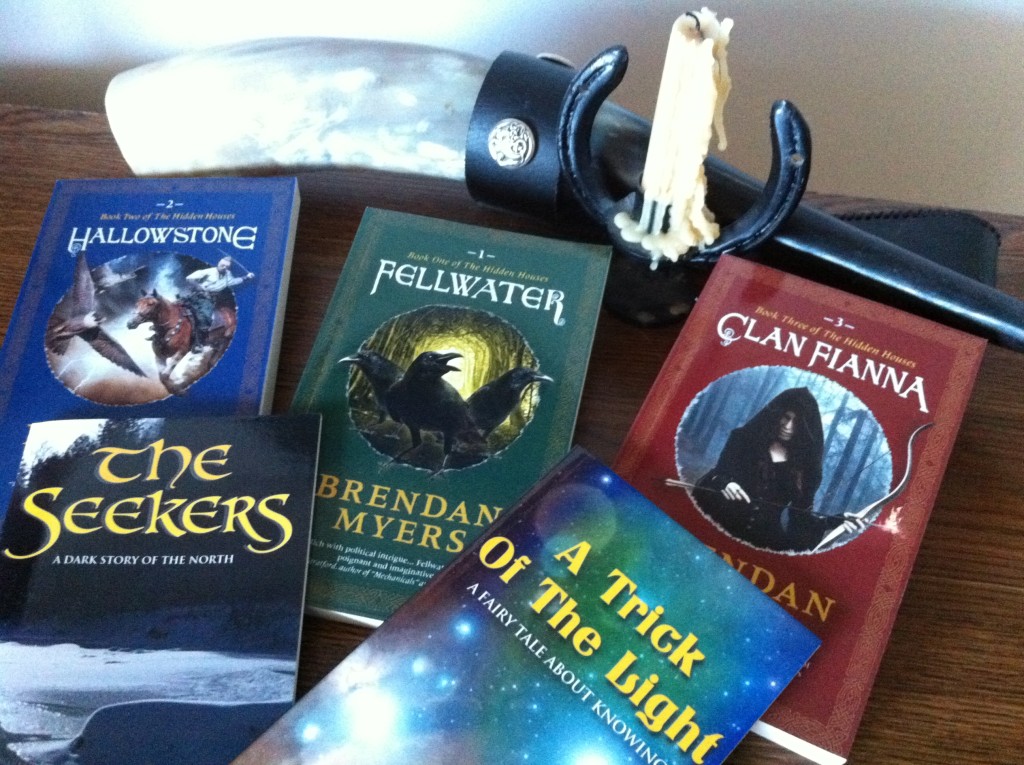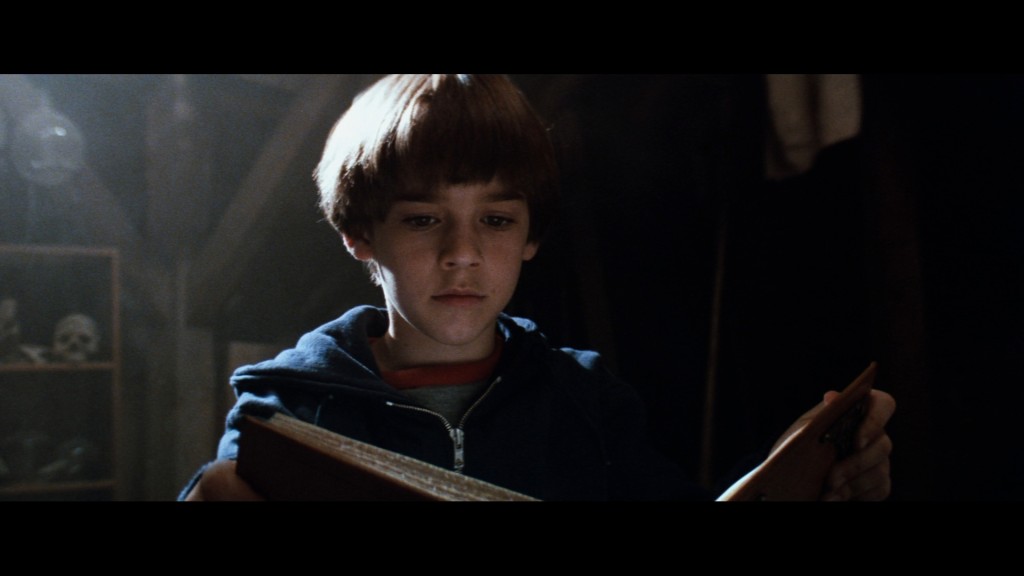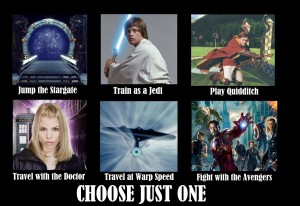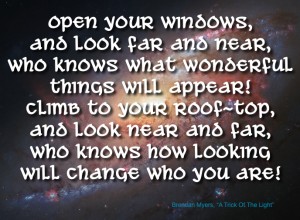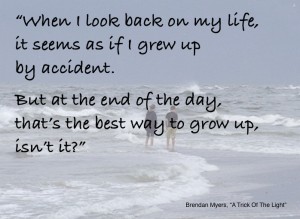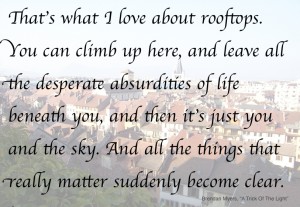Having set aside some ideas that I’m very sure are false, the way is opened to investigate alternative positions that might be true.
I use the word position in a multifold sense: first, as the opposite of a negation; second, as a statement which is proposed; third, as a posture or a pose to adopt, much like a fashion model might “strike a pose” in a certain costume; and fourth, as a place on earth where I make my stand, a ‘position’ I might mark on a map and say, “That’s my house. That’s where I live. Come visit!”
Mine is a kind of spiritual humanism. This means a point of view in which physical embodiment, rationality, sociability, emotional experiences, and mortality, hold spiritual significance. I don’t necessarily mean something entirely atheist, but I do mean something that emphasizes the inspirations, and the questions, that emerge from human life. Here are some of the positions which I’ve found by committing myself to this point of view. Tomorrow I may think differently, for I do not claim to know everything, and it’s possible that something here is wrong. But for now, following Luther: I shall say: “Here I stand I cannot do otherwise. Gods help me.”
1. The life of every human being is only her own to live.
You are ultimately responsible for your own happiness. Strictly speaking, no one lives ‘for’ anyone else, no one dies ‘for’ anyone else. In moral terms, this becomes an affirmation of freedom and mutual non-aggression. Following philosopher J.S. Mill, I am free to swing my fist as much as I like, so long as it does not injure my neighbour. This is the basic position of individualism, perhaps the most important value in the world-views we call modernism and liberalism. It is also the source of important hero-values like courage, autonomous reason, and the will to power. And it is the source of our loneliness; but I’ve lectured about that already.
2. Yet no one is an island.
The life of every human being is inextricably bound to relationships with others. As affirmed above, I am an individual; but paraphrasing the philosopher Charles Taylor, the significance of my individual choices depends upon their standing out from a shared horizon of meaning. This horizon comes to us from community, language, history, art, music, philosophy, foodways, religion, politics, family life, romantic love, and the whole inheritance of culture. The most satisfying kind of happiness tends to come from what we do with others: what we share with them, what we accomplish together, and so on. Feasting and drinking and storytelling around a fire at night; making music with your friends; sharing sexual pleasure with someone you love and someone who loves you– these are sacred things. The sacredness here isn’t just the sum of the separate individual choices: it’s something at emerges from the relationships.
3. The life of every human being is fragile.
We are born as infants, unable to walk or even lift our own heads. Should we live to the end of our natural time we must bear the infirmities of old age. In between, we might enjoy healthy adulthood most of the time, but we might get injured or acquire a disease, and thus find ourselves in need of the care of others. Some people might be held by diseases and disabilities for most or even all of their lives: think of people with arthritis, lupus, Parkinson’s disease, or depression. And some people’s life-long burdens have to do with social constructions like racism, sexism, homophobia, religious hate, and the like. We affirm that all human lives matter; but we must also affirm that some human lives are more endangered, more disempowered, more vulnerable than others. I acknowledge the groundwork laid here by philosophers like Martha Nussbaum and Cornell West. I also acknowledge the potential incongruity between this position, and the individualism noted above. How to resolve this problem is one of the ongoing questions in political philosophy, and I am still in search of an answer. But as a ‘holding position’, I think the fact of human fragility translates into ethics as a presumption in favour of generosity and kindness.
4. Every human being must, at various times in life, encounter the immensities.
This has been a theme in my private philosophy for a very long time. It first came to me just after encountering a storm in the forested midlands of Germany, in the summer of 2004. It grew in my mind as I read philosophers like Levinas and Ricoeur, and early european hero-epics like The Táin, and Beowulf. The Immensity is the event, experience, or circumstance which reveals something absolutely different from, and even greater than, the self; it calls one’s powers into question; it demands a response. You can’t control it; there’s nothing you can do about it; and there’s no way to avoid it. I take my hint from Stoicism here. Yet in the act of responding to it, your life is configured. You set yourself on a certain path, or into a certain way of being in the world, perhaps irreversibly, whether towards flourishing or towards bereftness. There are four such immensities for everyone: the vastness of earth and space, the otherness of other people, the imprisoning grasp of solitude and loneliness, and finally the inevitability of death. There may be more than these four, but these are the four that concern me the most.
5. The good life is one in which you respond to the call of the immensity in a way that brings out the best in you.
To explain: the best response to the immensity is the one that stretches your natural potentials toward excellence– and in so doing, transforms your choices, and also the call of the immensity, into an affirmation of the goodness of life. To be clear, the immensity itself doesn’t really change. But your encounter with the immensity can change from an occasion for fear and despair and doubt, to an occasion for affirming the goodness of life in this world. Here we find a new configuration for those individualist hero-virtues like courage and will: here we find a way of affirming them that doesn’t assume a strict black-and-white dichotomy between the individual and society. And this leads me to the most important position:
6. Life on earth is good; life on earth is worth living!
The proposition must be enacted in all one’s practices as an essential resolution of the will. Were I to be more rigorously philosophical, I would treat that proposition as an open question, something we could reasonably doubt. But in the everyday practicality of human life, the proposition “Life is good” must be a deep commitment. For its alternatives lead the way to injustice, suffering, despair, suicide, and The Nothing. If the gods exist, and if they have any kind of plan for humanity, their plan is fulfilled in its entirety in any present moment where people come together to discover something wonderful, create something beautiful, and fall in love with each other.
I have more positions than these, but I’ll have to explain them later. (Some are already explained in my previous published works.) At the moment, it’s exam-marking season here and I suppose I should get back to work. 🙂


